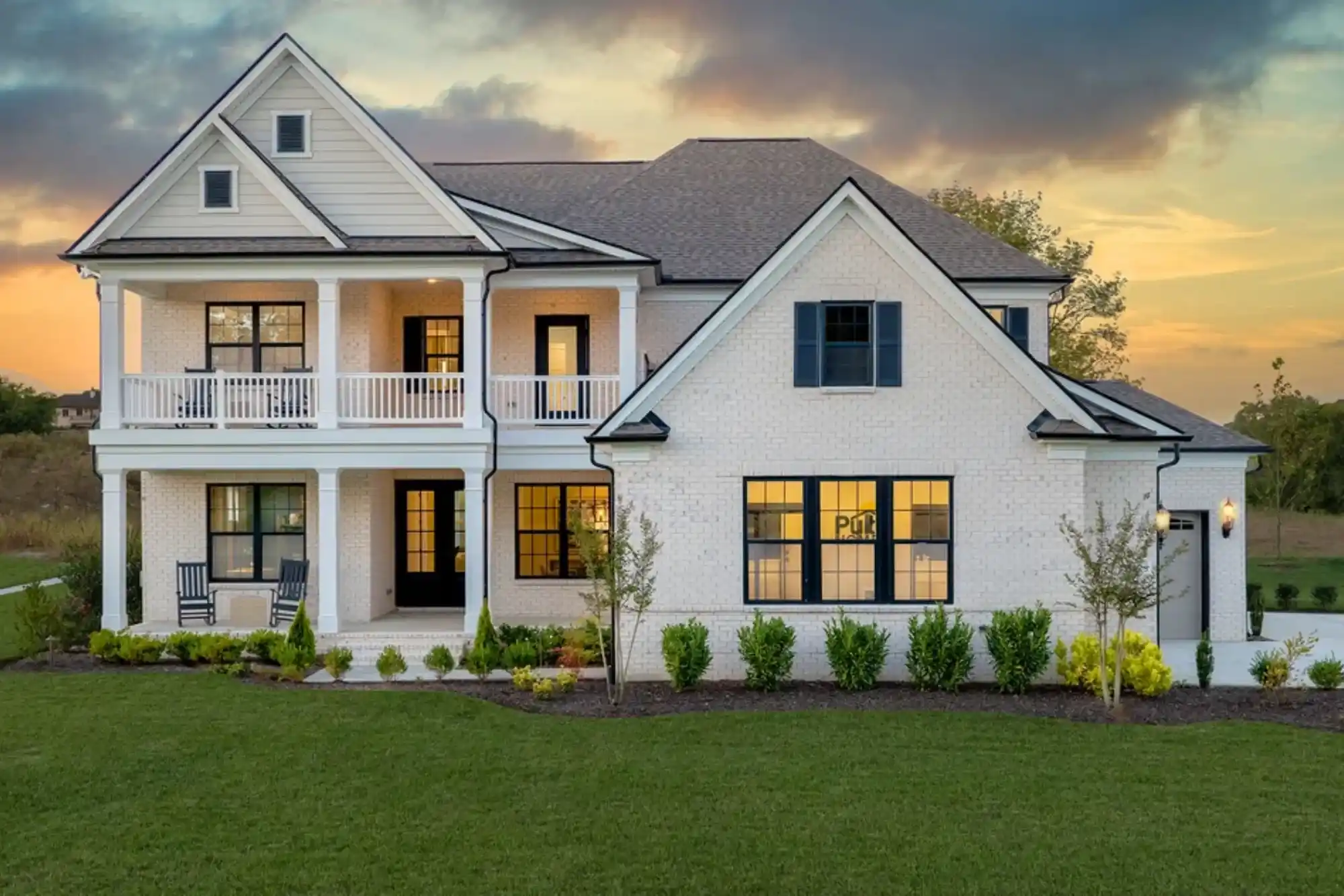When looking to buy real estate, it’s essential to understand not only the types of properties available but also the strategies for making an informed decision.
This guide will cover various aspects of purchasing real estate, the types of properties on the market, and the factors that make a property valuable. This can be a helpful resource whether you’re seeking a primary residence, investment property, or vacation home.
Types of Real Estate for Sale
Real estate comes in multiple forms, each offering unique benefits and considerations. Here’s an overview of the main types:
Residential Properties

Residential real estate includes single-family homes, condominiums, townhouses, and multi-family units. These properties are designed for living and offer options for both primary residences and rental investments.
Commercial Properties
Commercial real estate is intended for business use, including office spaces, retail buildings, and industrial warehouses. These properties are typically used to generate income through leasing and can be an excellent investment for experienced investors.
Industrial Properties
Industrial properties cover manufacturing plants, research labs, and warehouses. These properties are often in high demand and cater to businesses needing storage or production spaces.
Vacant Land
Vacant land or undeveloped land can be purchased and developed according to your preferences, from residential construction to farming and recreation. Investing in land can be lucrative due to its appreciation potential.
Mixed-Use Properties
These are properties that combine residential, commercial, or industrial uses in one location. Mixed-use developments are popular in urban areas and offer the convenience of combined spaces.
Benefits of Investing in Real Estate for Sale
Real estate has long been considered a strong investment option due to its potential to provide steady income, appreciation, and portfolio diversification. Here are some key benefits:
Income Generation
When you purchase property to rent, you can create a steady income stream. Rental properties often provide passive income, making it a popular choice for those looking for additional revenue sources.
Property Appreciation
Real estate has the potential for property appreciation over time. As demand increases, properties may gain in value, providing investors with profitable returns when they choose to sell.
Tax Benefits
Real estate investors can often take advantage of tax deductions related to depreciation, interest on mortgage payments, and certain property-related expenses. This can help reduce overall tax liability.
Tangible Asset
Unlike stocks or other financial assets, real estate is a tangible asset you can touch and use. This makes it easier to leverage as collateral for loans and gives owners a sense of stability.
Portfolio Diversification
Adding real estate to an investment portfolio can diversify risks. Since real estate often doesn’t correlate directly with stocks, it can help balance potential losses in other markets.
Factors to Consider When Buying Real Estate for Sale
Buying real estate requires significant consideration. The following factors can help ensure you make a sound investment:
Location
The location is one of the most critical factors. Proximity to schools, shopping centers, parks, and workplaces increases the property’s desirability and potential value.
Market Trends
Staying informed about real estate market trends is essential. Researching whether property values in a specific area are appreciating or depreciating can impact your investment decision.
Property Condition
The property’s condition will determine any repairs or renovations required. It’s always wise to conduct a thorough inspection to understand potential repair costs before purchasing.
Property Taxes
Property taxes vary by location and are essential to consider as they affect overall expenses. Areas with higher property taxes may have better amenities, but they will also increase the cost of owning the property.
Financing Options
Exploring various financing options is crucial when purchasing real estate. Different loan types have different terms, interest rates, and eligibility requirements.
The Buying Process for Real Estate for Sale

Research and Preparation
Begin by deciding on your budget, desired property type, and location. Conduct preliminary research to familiarize yourself with market prices and property availability.
Securing Financing
Applying for a mortgage or exploring other financing options is essential. Pre-approval helps set a clear budget and shows sellers you are a serious buyer.
Hiring a Real Estate Agent
A qualified real estate agent can assist with negotiations, legal paperwork, and finding properties that meet your criteria. They are skilled in evaluating market conditions and can help make the buying process smoother.
Property Visits and Inspection
Viewing properties in person or virtually is vital to understanding each option’s layout and features. After selecting a property, conducting a professional inspection can reveal any potential issues that may affect the buying decision.
Negotiation and Closing
Once you’ve selected a property, negotiate the price with the seller. After agreeing on terms, finalize the deal through the closing process, including signing contracts and transferring funds.
Table: Comparison of Real Estate Types
| Property Type | Purpose | Investment Potential | Risk Level | Ideal Buyer |
|---|---|---|---|---|
| Residential | Personal or rental use | Moderate to High (appreciation, rental) | Low to Moderate | First-time buyers, rental investors |
| Commercial | Business operations | High (income from leases) | Moderate to High | Experienced investors |
| Industrial | Manufacturing, storage, etc. | High (long-term leases) | High | Specialized business investors |
| Vacant Land | Development or personal use | High (potential for development) | Moderate to High | Developers, long-term investors |
| Mixed-Use | Combination of residential/commercial | Moderate to High (diversified income) | Moderate | Urban investors |
Important Tips for Buying Real Estate for Sale
Establish Clear Goals
Understand whether you’re looking for a primary residence, a rental investment, or a vacation home. Each type of property will come with different considerations and benefits.
Budget Accordingly
Stick to a budget that allows you to afford the property without compromising on other financial commitments. Consider additional costs such as property taxes, maintenance, and insurance.
Explore Multiple Properties
Visit multiple properties to understand what’s available within your budget and desired location. Comparing properties will give you a clearer sense of value and features.
Don’t Skip Due Diligence
Due diligence is essential for any real estate purchase. This includes reviewing the property title, conducting inspections, and checking zoning laws if you plan to develop the land.
Understand Investment Returns
If purchasing for investment, calculate expected returns carefully. Take into account property appreciation rates, potential rental income, and maintenance expenses.
FAQs on Real Estate for Sale
Q1. What are the best types of real estate for investment purposes?
The best type of real estate depends on individual goals and risk tolerance. Residential properties often offer steady rental income, while commercial properties may provide higher returns but with increased risks.
Q2. How do I finance my real estate purchase?
Financing options include conventional loans, FHA loans, VA loans, and other mortgage types. It’s advisable to compare rates, terms, and eligibility requirements to select the best option for your budget.
Q3. Is it possible to negotiate the price of a property?
Yes. Most sellers are open to negotiation. Hiring a skilled real estate agent can help with negotiations to secure a favorable price.
Q4. How much should I expect to spend on property taxes?
Property taxes vary widely depending on the property’s location and assessed value. Local governments often provide property tax information, which is essential to factor into your budget.
Q5. How long does it typically take to close on a real estate property?
The closing process generally takes between 30 to 45 days. This time frame can vary based on the type of loan, property location, and any required inspections.
Whether you’re a first-time buyer or an experienced investor, purchasing real estate requires planning, research, and attention to detail. This guide to real estate for sale provides a foundation to help you navigate the market confidently.
From understanding the various property types to mastering the buying process, a strategic approach can transform a simple purchase into a lucrative investment opportunity.







